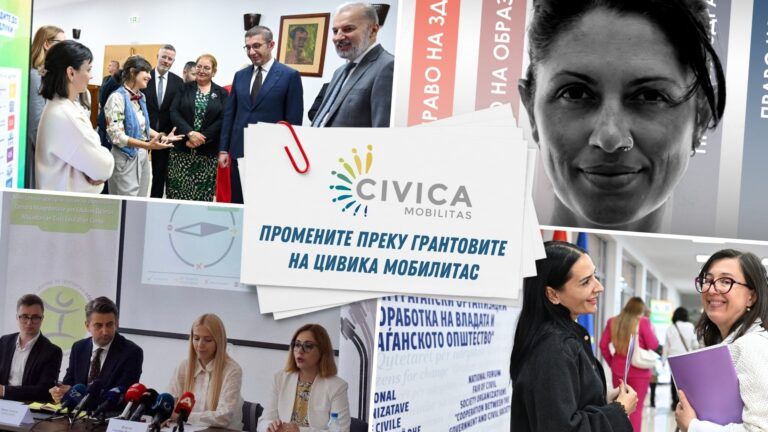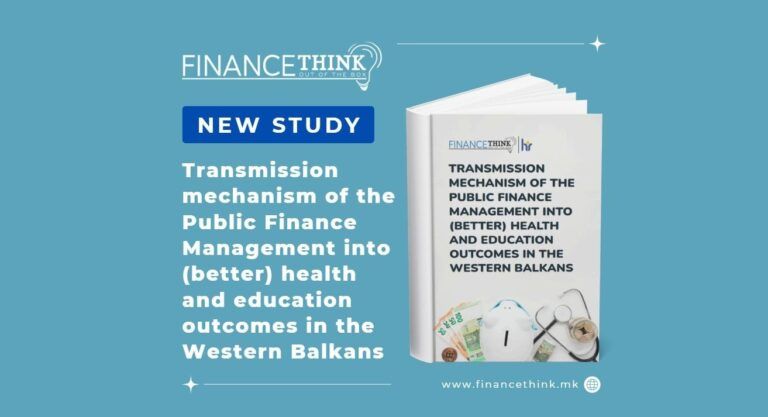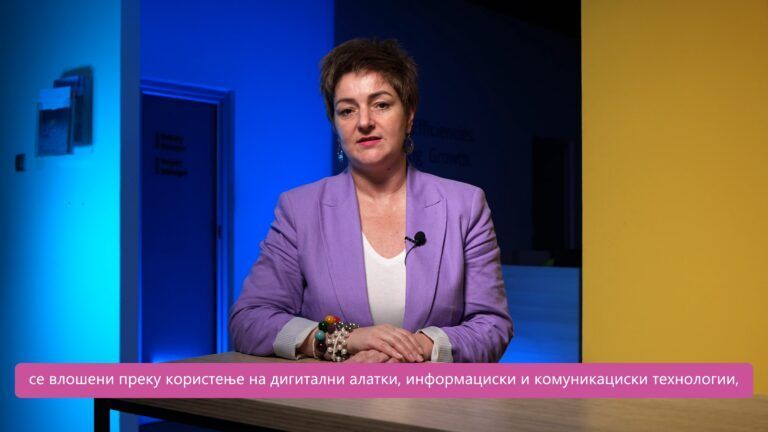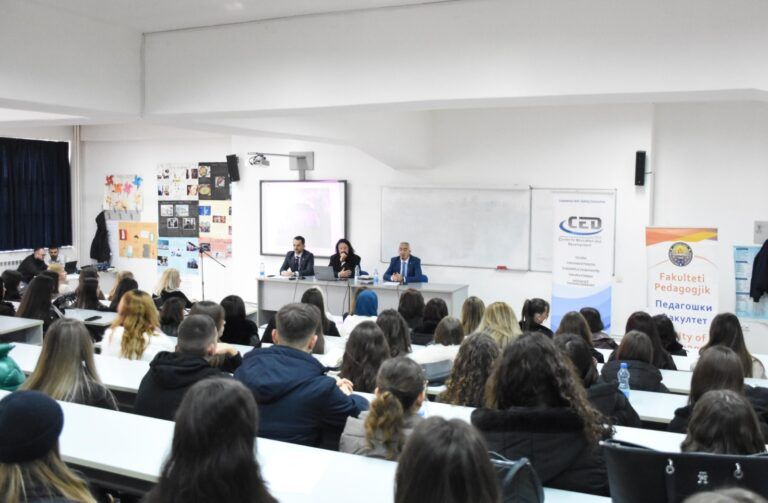ENGAGING THE NEXT GENERATION: YOUTH INCLUSION IN THE EUROPEAN INTEGRATION OF NORTH MACEDONIA
This policy research paper analyzes the segments of youth inclusion in the processes of European integration, Europeanization, and democratization in North Macedonia. Despite an ambitious legal and strategic framework—namely the Law on Youth Participation and Youth Policies (2020) and the National Youth Strategy 2023–2027—youth engagement remains largely symbolic, fragmented, and project-based rather than systematic and transformative.
This study identifies institutional, political, social, and economic barriers that limit youth participation in policymaking and EU reform processes. These findings were reached through a carefully selected mixed-methods approach, including desk research, interviews with policymakers, youth leaders, civil society actors, and regional comparative analysis. Based on key research findings, youth in North Macedonia express high interest in democratic values and European ideals but remain excluded from formal decision-making structures.
They are often included by decision-makers only through consultative or temporary formats, without being given a meaningful or influential role in public policy. The main obstacles to their involvement in the Europeanization and democratization processes include institutional mistrust, lack of transparency, limited resources, and the instrumentalization of youth structures. This study argues that meaningful youth inclusion is critical not only for democratic consolidation but also for accelerating North Macedonia’s EU accession path. To bridge the gap between legislation and practice, the research proposes a set of actionable policy recommendations aimed at building participatory mechanisms, empowering youth organizations, and fostering inter-institutional cooperation. The study emphasizes the need to reposition youth from passive beneficiaries to active co-creators of the country’s European future.
The entire research policy paper is available HERE:

This research was conducted within the framework of the project “Youth Engagement for the Europeanization of the Balkans”, implemented by the BIRC Institute from North Macedonia, NGO GLAS from Montenegro, and CFID from Kosovo, and supported by the Western Balkans Fund with co-financing from the European Union.
This publication has been produced with the financial assistance of the European Union. The contents of this publication are the sole responsibility of the beneficiary and can in no way be taken to reflect the views of the European Union.
This post was originally published on this site




![[Aggregator] Downloaded image for imported item #43092](https://civicamobilitas.mk/wp-content/uploads/2025/12/media-lit-call-for-proposals-fotor-naslovna.png)
![[Aggregator] Downloaded image for imported item #43146](https://civicamobilitas.mk/wp-content/uploads/2025/12/10-1536x1152-1-1024x768-1-768x576.jpg)

